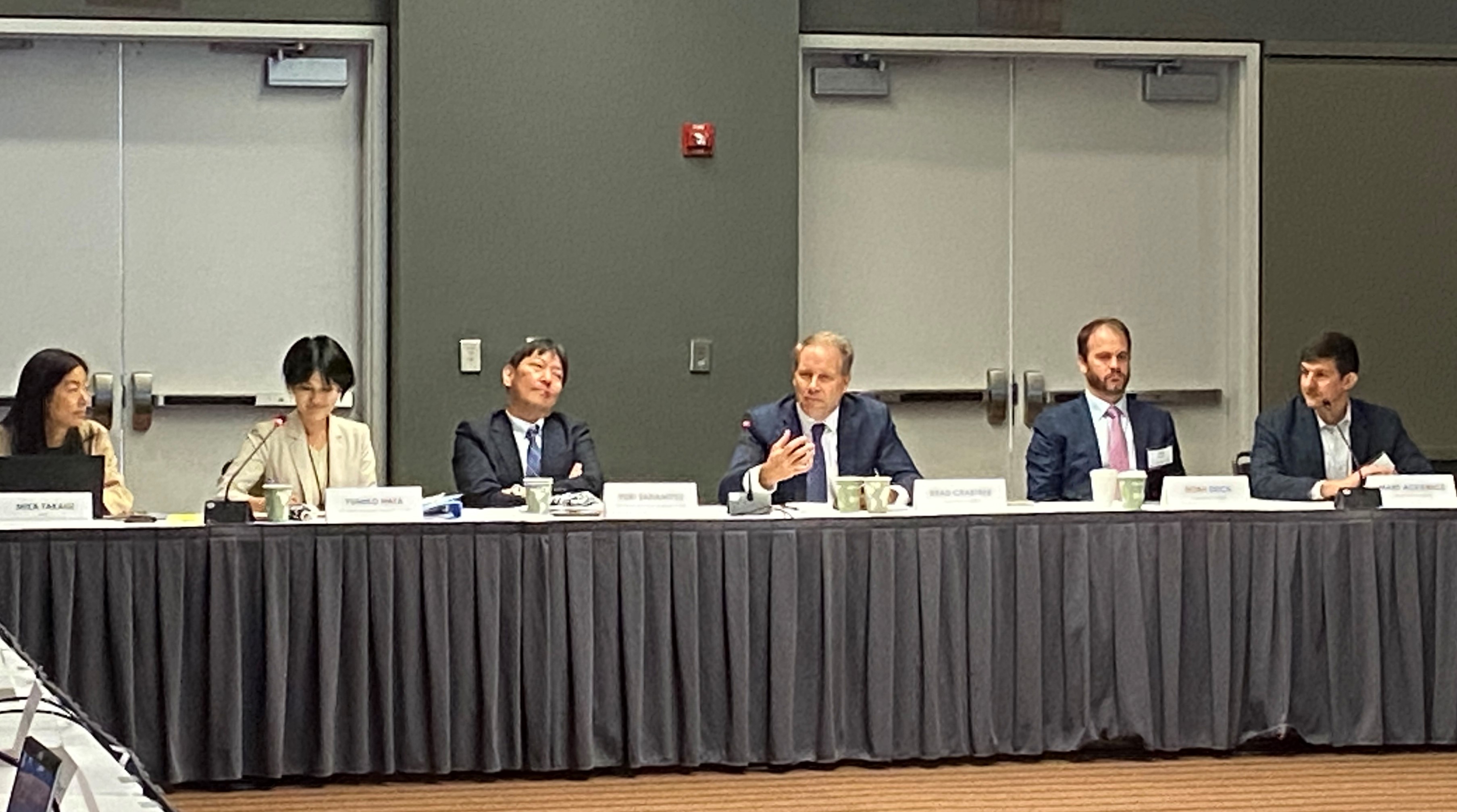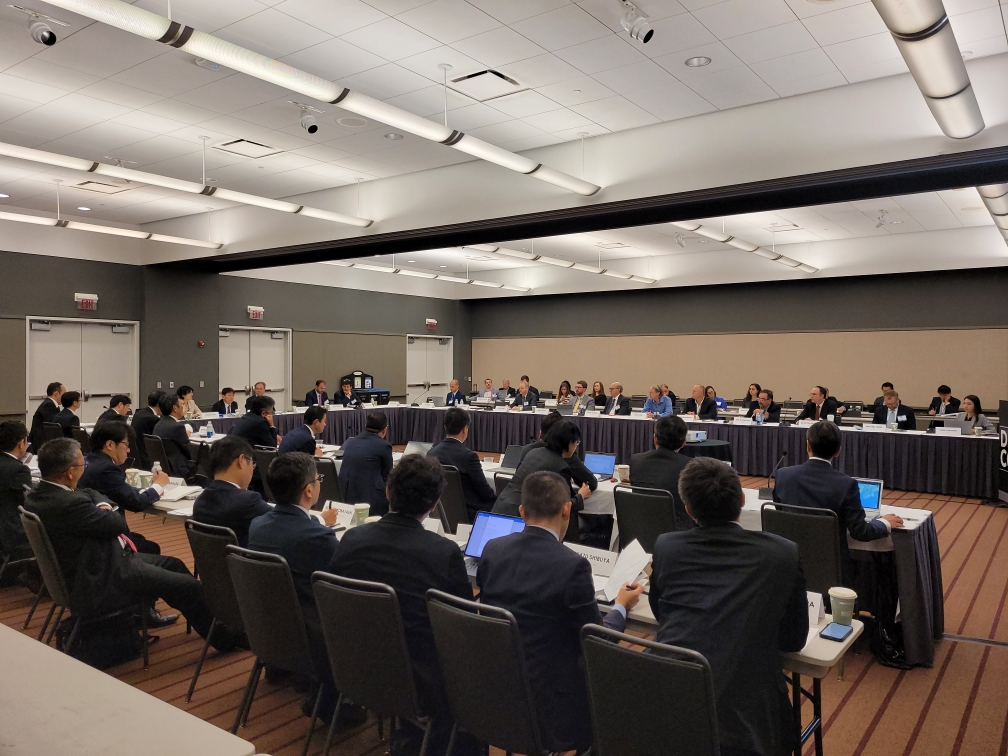- Home
- News Releases
- Back Issues
- September FY2023
- The U.S.-Japan CCUS/Carbon Recycling Working Group Held
The U.S.-Japan CCUS/Carbon Recycling Working Group Held
September 5, 2023
On Thursday, August 31, the Ministry of Economy, Trade and Industry (METI), together with the U.S. Department of Energy, the National Energy Technology Laboratory (NETL), and the New Energy and Industrial Technology Development Organization (NEDO), co-hosted the U.S.-Japan CCUS/Carbon Recycling Working Group in the United States as an opportunity to deepen discussions on Carbon Dioxide Capture, Utilization and Storage (CCUS)/Carbon Recycling technologies.
1. Background
On Thursday, August 31, the Ministry of Economy, Trade and Industry, in cooperation with the U.S. Department of Energy, the National Energy Technology Laboratory (NETL), and the New Energy and Industrial Technology Development Organization (NEDO), hosted the U.S.-Japan CCUS/Carbon Recycling Working Group in Pittsburgh, United States. The working group is positioned as one of the cooperation areas in the "U.S.-Japan Clean Energy and Energy Security Initiative (CEESI), which was established in May 2022 as the preeminent U.S.-Japan ministerial-level energy dialogue.
2. Overview
In the working group, participants agreed on the need for further expansion of U.S.-Japan collaboration projects and deployment of their technologies to various regions including the Asia-Pacific, and shared future issues and policies expected in the field of CCUS/Carbon Recycling. In particular, we confirmed the importance of continued collaboration between NETL’S National Carbon Capture Center (NCCC) and NEDO's R&D and Demonstration base for Carbon Recycling at Osaki-Kamijima in the area of technology development, exploring the optimal placement of CO₂ and energy, and building supply chains, creating and fostering markets for CO₂, in order to promote social implementation of CCUS/Carbon Recycling.
In addition, we confirmed that carbon-recycled fuels (e-fuel, e-methane, etc.) can utilize existing infrastructure and contribute to ensuring energy security. Furthermore, we confirmed that e-fuel has high potential as one of the various options for emission reduction in the transportation sector due to its high energy density and availability for existing fleets, and that e-methane is an effective mean of smooth transitioning for carbon neutrality from the introduction of natural gas. As challenges, we also confirmed the importance of accelerating efforts to raise awareness, conduct R&D, develop demonstrations and business models, and build supply chains, as well as encouraging consensus building among the public and private sectors so that international transactions of carbon recycled fuels can be treated as carbon neutral.

